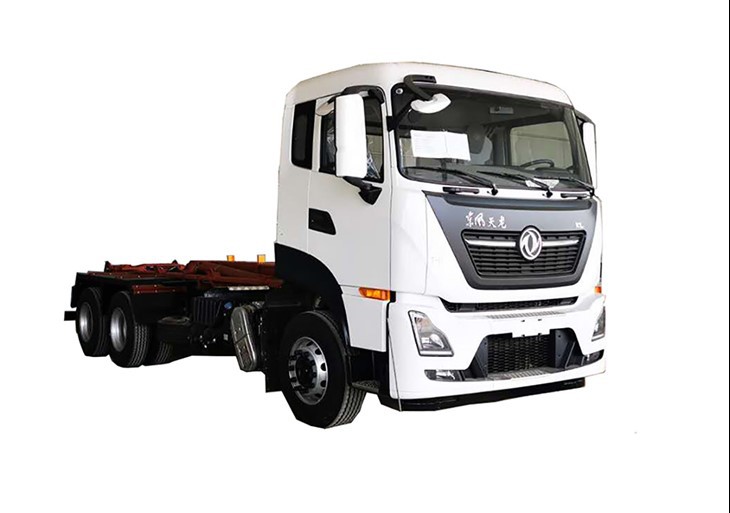Understanding the cost of trash trucks is crucial for municipalities, waste management companies, and even small businesses wanting to invest in waste services. This article will take you through the factors influencing the cost of trash trucks, types available, financing options, and much more, ensuring you have all the information needed to make an informed decision.
1. Overview of Trash Trucks
1.1 What Are Trash Trucks?
Trash trucks, also known as garbage trucks or waste collection vehicles, are specially designed vehicles for the collection and transportation of waste materials. They come in various sizes and types, catering to different types of waste management needs.
1.2 Types of Trash Trucks
There are several types of trash trucks available in the market:
- Front Loader Trucks: Designed for heavy-duty waste collection, ideal for commercial operations.
- Rear Loader Trucks: Most common for residential use, allowing manual loading from the rear.
- Side Loader Trucks: Equipped with robotic arms, these trucks automatically pick up bins from the side.
- Roll-off Trucks: Used primarily for construction and large-scale waste projects.
2. Factors Influencing the Cost of Trash Trucks
2.1 Type of Truck
The type of trash truck you choose significantly impacts the cost. For example, front loaders are generally more expensive due to their capabilities compared to rear loaders.
2.2 Size and Capacity
The size and capacity of a truck also determine its price. Larger trucks with higher capacities usually cost more. Here’s a quick comparison:
| Size | Average Capacity (Cubic Yards) | Estimated Cost |
|---|---|---|
| Small | 10-15 | $150,000 – $200,000 |
| Medium | 20-30 | $200,000 – $300,000 |
| Large | 35+ | $300,000 – $500,000+ |
2.3 Technology and Features
Modern trash trucks come equipped with advanced technology such as GPS tracking, automated collection systems, and improved fuel efficiency systems. These enhanced features can lead to higher initial costs but may result in long-term savings.
3. Average Costs for Different Types of Trash Trucks
3.1 Front Loader Trucks
Prices for front loader trucks generally range from $250,000 to $400,000, depending on the specifications and brand.
3.2 Rear Loader Trucks
These trucks typically cost between $150,000 to $200,000. The price may vary slightly according to options and customizations.
3.3 Side Loader Trucks
Side loader trucks can cost between $250,000 to $350,000 because of their automation features.
3.4 Roll-off Trucks
Roll-off trucks tend to be on the higher end, usually priced from $300,000 to $600,000, largely due to their specialized equipment.
4. Buying New vs. Used Trash Trucks
4.1 Advantages of Buying New Trucks
- Latest technology and features
- Full warranty coverage
- Lower maintenance costs initially
4.2 Advantages of Buying Used Trucks
- Lower purchase cost typically between $50,000 to $150,000
- Depreciation has already occurred
- Potential for higher quality if purchasing from a reputable dealer
5. Financial Considerations
5.1 Financing Options
Financing a trash truck can be done through several options:
- Loans: Traditional bank loans or financing from the truck manufacturer.
- Leasing: Offers lower monthly payments at the expense of ownership.
- Government Programs: Some municipalities may qualify for grants or incentives for purchasing eco-friendly vehicles.
5.2 Operating Costs
While the purchase price is significant, don’t forget about the operational costs, including:
- Fuel and maintenance
- Insurance
- Driver salaries
6. Tips for Buying a Trash Truck
6.1 Research Brands and Models
It’s important to research different brands and models to find the one that best suits your needs.
6.2 Evaluation of Maintenance Costs
Consider the availability of parts and service. Some trucks may have lower initial costs but higher maintenance expenses.
6.3 Consider Future Growth
If you expect your waste collection needs to grow, factor this into your truck purchase to avoid needing a replacement soon.
7. Challenges in Trash Truck Purchase
7.1 Limited Budget
Budget constraints can limit the options available. Consider used trucks or financing options to increase affordability.
7.2 Availability of Models
Not all models may be available in your area, which might necessitate additional shipping costs.
8. The Future of Trash Trucks
8.1 Electric Trash Trucks
With the growing emphasis on sustainability, electric trash trucks are becoming more common. Though their initial cost can be higher, they promise lower operational costs and are better for the environment.
8.2 Smart Technology Integration
Future trends show more integration of smart technology to enhance efficiency, such as route optimization and real-time tracking.
9. Frequently Asked Questions (FAQ)
9.1 What is the average lifespan of a trash truck?
The average lifespan of a trash truck is around 10-15 years, depending on maintenance and usage conditions.
9.2 How much does a used trash truck cost?
A used trash truck can cost anywhere from $50,000 to $150,000, depending on the age, condition, and make.
9.3 Are electric trash trucks worth the investment?
Yes, while the initial cost is higher, they offer long-term savings through lower fuel and maintenance costs, along with eco-friendly benefits.
9.4 What are the ongoing costs of operating a trash truck?
Ongoing costs include fuel, maintenance, insurance, and driver salaries. It’s essential to factor these into your budget.
9.5 Can municipalities get grants for purchasing trash trucks?
Yes, some municipalities may qualify for grants or funding from various government or environmental organizations to purchase eco-friendly waste management vehicles.
9.6 What features should I look for in a trash truck?
Look for features like fuel efficiency, maintenance requirements, size, and available technology to improve operational efficiency.





